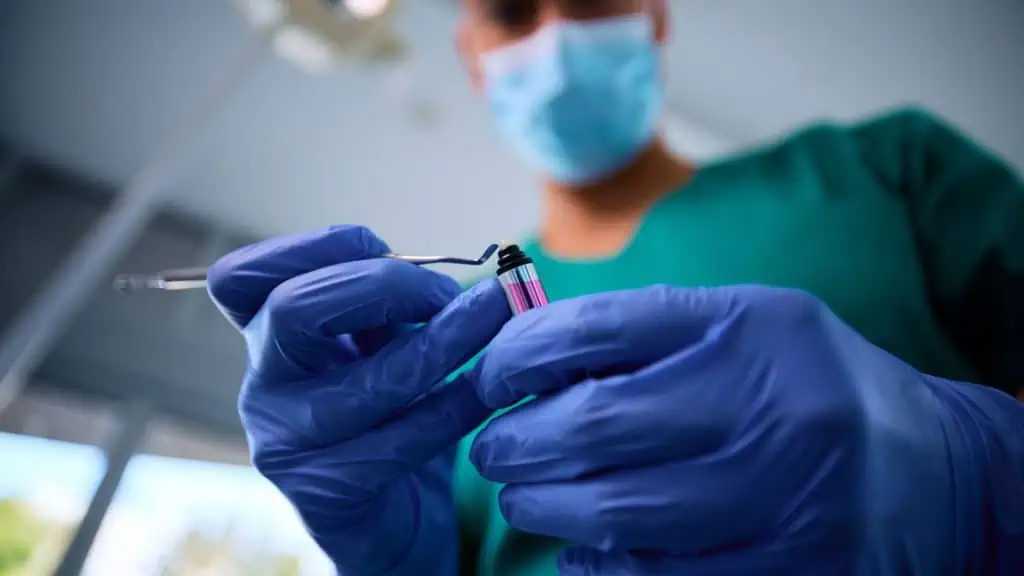General Dentistry in Kitchener
Services
General dentistry is your first line of defence for a healthy smile, offering everything from preventive cleanings to restorative solutions. Regular visits ensure strong teeth, healthy gums, and lasting confidence—so you can smile every day.
General Dentistry at Deer Ridge Dental
General dentistry is your first line of defense for a healthy smile, offering everything from preventive cleanings to restorative solutions. Regular visits ensure strong teeth, healthy gums, and lasting confidence—so you can smile every day.
General dentistry plays a vital role in maintaining both your oral and overall health. By offering a wide range of services and dental procedures from preventive care to restorative and cosmetic treatments, general dentists are your primary care providers for oral health. Regular checkups, good oral hygiene, and prompt treatment of dental issues are essential for keeping your teeth, gums, and mouth healthy for a lifetime.
If you haven’t had a dental check-up in a while, consider scheduling an appointment with your general dentist to ensure your smile remains healthy and beautiful.

- Preventive Care
- Routine Check-ups and Cleanings: Regular dental exams, usually every six months, help identify potential problems early and keep teeth clean and healthy. During a check-up, your dentist will inspect your teeth and gums, clean your teeth, and check for signs of cavities, gum disease, or other dental issues.
- Fluoride Treatments: A fluoride treatment may be recommended to help strengthen tooth enamel and prevent decay, particularly for children or patients at higher risk for cavities.
- Sealants: Dental sealants are thin, protective coatings applied to the chewing surfaces of molars to prevent cavities, particularly in children and teens.
- Restorative Dentistry
- Dental Fillings: If a cavity is detected, your general dentist will clean out the decayed area and fill it with a durable material (such as composite resin, amalgam, or gold). Fillings restore the tooth’s structure and prevent further decay.
- Porcelain Crowns: A dental crown (cap) is a custom-made covering that fits over a damaged or decayed tooth. Crowns can restore the tooth’s strength and appearance.
- Dental Bridges: A dental bridge replaces one or more missing teeth by anchoring an artificial tooth to the adjacent natural teeth.
- Dental Dentures: Full or partial dentures replace missing teeth and can help restore the function and appearance of your smile. They can be removable or fixed, depending on the patient’s needs.
- Inlays and Onlays: These are custom-made fillings that fit within or over the tooth to restore a tooth that has moderate decay or damage.
- Cosmetic Dentistry
- Teeth Whitening: Whitening treatments, either in-office or with take-home kits, help to brighten teeth and remove stains caused by foods, drinks, tobacco, and aging.
- Dental Veneers: Thin shells of porcelain or composite material are bonded to the front of your teeth to improve the appearance of chips, cracks, discoloration, or misalignment.
- Dental Bonding: Tooth-colored resin is applied to repair or reshape teeth with minor imperfections, such as chips, gaps, or discoloration.
- Periodontal Care (Gum Health)
- Gum Disease Treatment: General dentists play a key role in diagnosing and treating gingivitis (early-stage gum disease) and periodontitis (advanced gum disease). Treatment may include cleanings, scaling, root planing, and in some cases, referral to a periodontist for surgical treatments.
- Soft Tissue Management: In addition to treating gum disease, general dentists can provide treatments to promote healthy gum tissue, such as periodontal maintenance.
- Oral Surgery
- Tooth Extractions: A general dentist may extract a tooth that is severely decayed, damaged, or infected. Wisdom teeth extractions are also common procedures performed by general dentists.
- Minor Oral Surgery: General dentists may perform minor surgical procedures like the removal of cysts, the treatment of abscesses, or the placement of dental implants in certain cases.
- Root Canals Therapy
- A root canal is necessary when the pulp inside a tooth becomes infected or inflamed due to deep decay or injury. The procedure involves removing the infected pulp, cleaning the inside of the tooth, and sealing it. A crown is usually placed on the tooth afterward to restore its function and appearance.
- Pediatric Dentistry
- General dentists also care for children’s dental health, including baby teeth, teething, and the prevention of childhood dental issues. This may include regular check-ups, fluoride treatments, and education on proper oral hygiene habits.
- Emergency Dental Care
- General dentists also provide emergency care for urgent dental problems, such as severe toothaches, broken teeth, knocked-out teeth, or injuries to the gums or mouth. Immediate treatment can prevent further damage and reduce pain.
Are You a New Patient Looking for a Dentist in Kitchener?
Your smile is worth protecting—don’t wait for dental issues to develop. At Deer Ridge Dental, your trusted dentist in Kitchener, our experienced team is dedicated to providing personalized, high-quality care to keep your smile healthy and confident. For any dental procedure in Kitchener, our team ensures comfortable, confident care. We’re committed to making your experience smooth and stress-free, so you can smile with ease.
Why is General Dentistry Important?
Prevention of Serious Conditions
Overall Health Benefits
Preserving Your Smile
Saving Time and Money




What to Expect at a General Dentistry Appointment
Initial Consultation
Routine Exams
Professional Cleaning
Treatment Recommendations
Preventive Education
Routine Visits
For most people, it’s recommended to visit the dentist every 6 months for routine exams and cleanings. If you have a higher risk for dental problems (due to conditions like diabetes, smoking, or poor oral hygiene), your dentist may recommend more frequent visits.
When You Have a Concern
If you experience any pain, swelling, tooth sensitivity, or other dental problems, you should make an appointment with a general dentist. Early intervention is key to preventing more severe issues.
Emergency Situations
If you experience a dental emergency such as a knocked-out tooth, severe toothache, or trauma to the mouth, don’t hesitate to contact your general dentist right away.
Our Dental Services
At Deer Ridge Dental, we offer a range of dental services for you and your family.

MEET OUR DENTIST
Dr. Harry Lo, DDS
Book Your Dental Appointment Today
Give your child the best dental care today. Deer Ridge Dental offers expert General dentistry in Kitchener for healthy, confident smiles. Book Now!